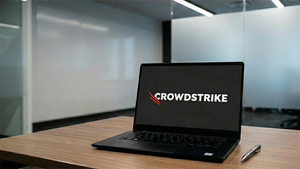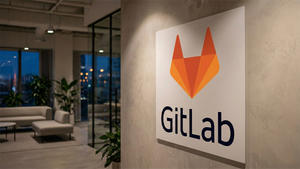New Prescription Drug User Fee Act (PDUFA) date of June 30, 2024
Rocket Pharmaceuticals, Inc. (NASDAQ: RCKT), a fully integrated, late-stage biotechnology company advancing a sustainable pipeline of genetic therapies for rare disorders with high unmet need, today announced the U.S. Food and Drug Administration (FDA) has extended the Priority Review period for the Biologics License Application (BLA) for KRESLADI™ (marnetegragene autotemcel) for severe Leukocyte Adhesion Deficiency-I (LAD-I). The FDA extended the review period by three months, to June 30, 2024, to allow additional time to review clarifying Chemistry, Manufacturing, and Controls (CMC) information submitted by Rocket in response to FDA information requests. The FDA has further confirmed that an advisory committee meeting is not needed.
“We look forward to continuing our close collaboration with the FDA and together share a deep sense of responsibility in the rigorous process required to bring novel, potentially curative gene therapies, like KRESLADI™ to patients who need them most,” said Gaurav Shah, M.D., Chief Executive Officer, Rocket Pharma. “We remain confident and focused on making this therapy available for patients as quickly as possible.”
Positive top-line data from the global Phase 1/2 study of KRESLADI™ demonstrated 100% overall survival at 12 months post-infusion (and for the entire duration of follow-up) for all nine LAD-I patients with 12 to 24 months of available follow-up. Data also showed large decreases compared with pre-treatment history in the incidences of significant infections, combined with evidence of resolution of LAD-I-related skin lesions and restoration of wound repair capabilities. All primary and secondary endpoints were met, and KRESLADI™ was very well tolerated in all patients with no treatment related serious adverse events.
About KRESLADI™ (marnetegragene autotemcel)
KRESLADI™ is an investigational gene therapy that contains autologous (patient-derived) hematopoietic stem cells that have been genetically modified with a lentiviral (LV) vector to deliver a functional copy of the ITGB2 gene, which encodes for the beta-2 integrin component CD18, a key protein that facilitates leukocyte adhesion and enables their extravasation from blood vessels to fight infection. Rocket holds FDA Regenerative Medicine Advanced Therapy (RMAT), Rare Pediatric, and Fast Track designations in the U.S., PRIME and Advanced Therapy Medicinal Product (ATMP) designations in the EU, and Orphan Drug designations in both regions for the program. KRESLADI™ was in-licensed from the Centro de Investigaciones Energéticas, Medioambientales y Tecnológicas (CIEMAT), Centro de Investigación Biomédica en Red de Enfermedades Raras and Instituto de Investigación Sanitaria Fundación Jiménez Díaz. The lentiviral vector was developed in a collaboration between University College London and CIEMAT.
About Leukocyte Adhesion Deficiency-I
Severe Leukocyte Adhesion Deficiency-I (LAD-I) is a rare, autosomal recessive pediatric disease caused by mutations in the ITGB2 gene encoding for the beta-2 integrin component CD18. CD18 is a key protein that facilitates leukocyte adhesion and extravasation from blood vessels to combat infections. As a result, children with severe LAD-I are often affected immediately after birth. During infancy, they suffer from recurrent life-threatening bacterial and fungal infections that respond poorly to antibiotics and require frequent hospitalizations. Children who survive infancy experience recurrent severe infections including pneumonia, gingival ulcers, necrotic skin ulcers, and septicemia. Without a successful bone marrow transplant, survival beyond childhood is rare. LAD-I is estimated to impact an estimated 800 to 1,000 individuals in the U.S. and Europe. Currently the only potential curative treatment is an allogeneic hematopoietic stem cell transplant, which may not be available in time for these children and itself has substantial morbidity and mortality. There is a high unmet medical need for patients with severe LAD-I.
Rocket’s LAD-I research is made possible by a grant from the California Institute for Regenerative Medicine (Grant Number CLIN2-11480). The contents of this press release are solely the responsibility of Rocket and do not necessarily represent the official views of CIRM or any other agency of the State of California.
About Rocket Pharmaceuticals, Inc.
Rocket Pharmaceuticals, Inc. (NASDAQ: RCKT) is a fully integrated, late-stage biotechnology company advancing a sustainable pipeline of investigational genetic therapies designed to correct the root cause of complex and rare disorders. Rocket’s innovative multi-platform approach allows us to design the optimal gene therapy for each indication, creating potentially transformative options that enable people living with devastating rare diseases to experience long and full lives.
Rocket’s lentiviral (LV) vector-based gene therapies target hematologic diseases and consist of late-stage programs for Fanconi Anemia (FA), a difficult to treat genetic disease that leads to bone marrow failure and potentially cancer, Leukocyte Adhesion Deficiency-I (LAD-I), a severe pediatric genetic disorder that causes recurrent and life-threatening infections which are frequently fatal, and Pyruvate Kinase Deficiency (PKD), a monogenic red blood cell disorder resulting in increased red cell destruction and mild to life-threatening anemia.
Our adeno-associated virus (AAV)-based cardiovascular portfolio includes a late-stage program for Danon Disease, a devastating heart failure condition resulting in thickening of the heart, an early-stage program in clinical trials for PKP2-arrhythmogenic cardiomyopathy (ACM), a life-threatening heart failure disease causing ventricular arrhythmias and sudden cardiac death, and a pre-clinical program targeting BAG3-associated dilated cardiomyopathy (DCM), a heart failure condition that causes enlarged ventricles.
For more information about Rocket, please visit www.rocketpharma.com and follow us on LinkedIn, YouTube and X.
Rocket Cautionary Statement Regarding Forward-Looking Statements
Various statements in this release concerning Rocket’s future expectations, plans and prospects, including without limitation, Rocket’s expectations regarding the safety and effectiveness of KRESLADI™, the expected timing and data readouts of Rocket’s ongoing and planned clinical trials, and the expected timing and outcome of Rocket’s regulatory interactions and planned submissions, , may constitute forward-looking statements for the purposes of the safe harbor provisions under the Private Securities Litigation Reform Act of 1995 and other federal securities laws and are subject to substantial risks, uncertainties and assumptions. You should not place reliance on these forward-looking statements, which often include words such as "believe," "expect," "anticipate," "intend," "plan," "will give," "estimate," "seek," "will," "may," "suggest" or similar terms, variations of such terms or the negative of those terms. Although Rocket believes that the expectations reflected in the forward-looking statements are reasonable, Rocket cannot guarantee such outcomes. Actual results may differ materially from those indicated by these forward-looking statements as a result of various important factors, including, without limitation, trial timelines and data readouts, our expectations regarding our drug supply for our ongoing and anticipated trials, actions of regulatory agencies, which may affect the initiation, timing and progress of pre-clinical studies and clinical trials of its product candidates, Rocket’s dependence on third parties for development, manufacture, marketing, sales and distribution of product candidates, the outcome of litigation, and unexpected expenditures, as well as those risks more fully discussed in the section entitled "Risk Factors" in Rocket’s Annual Report on Form 10-K for the year ended December 31, 2022, filed February 28, 2023 with the SEC and subsequent filings with the SEC including our Quarterly Reports on Form 10-Q. Accordingly, you should not place undue reliance on these forward-looking statements. All such statements speak only as of the date made, and Rocket undertakes no obligation to update or revise publicly any forward-looking statements, whether as a result of new information, future events or otherwise.
View source version on businesswire.com: https://www.businesswire.com/news/home/20240213024672/en/
Contacts
Media
Kevin Giordano
media@rocketpharma.com
Investors
Brooks Rahmer
investors@rocketpharma.com





